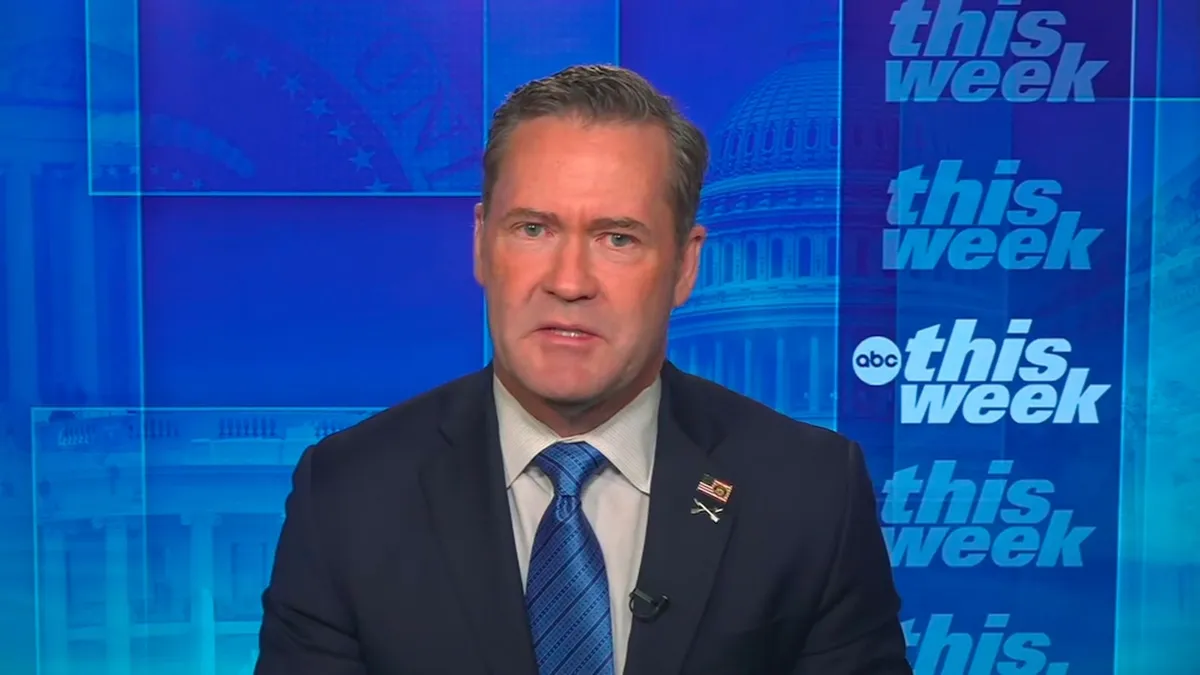
On Saturday, the United States conducted significant airstrikes in Yemen, specifically aimed at eliminating multiple leaders of the Iranian-backed Houthi movement. This information was confirmed by White House national security adviser Mike Waltz during an appearance on ABC's This Week on Sunday. Waltz emphasized that these strikes mark a decisive shift from the previous military strategies employed by the Biden administration against the Houthi forces, which were designated as a foreign terrorist organization by the Trump administration.
Waltz articulated that the recent airstrikes were not merely a series of minor retaliatory actions, but rather an "overwhelming response" designed to significantly impact the Houthi leadership. He stated, "These were not the kind of pinprick, back and forth -- what ultimately proved to be feckless attacks." The focus of these strikes was twofold: targeting key Houthi leaders and holding Iran accountable for its support of the Houthis, particularly regarding attacks on U.S. warships and disruptions to global commerce.
According to Waltz, the ongoing conflict has led to a staggering 70% of global shipping routes being redirected around South Africa to avoid Houthi-controlled areas. This redirection has resulted in increased shipping costs and significant supply chain issues worldwide. "President Trump has found it unacceptable," Waltz noted, highlighting the challenges inherited by the current administration and indicating that these strikes are part of a broader, sustained effort to restore normalcy to global trade.
In response to the escalating situation, former President Donald Trump took to social media, issuing a dire warning to the Houthis. He stated that if their attacks continue, "HELL WILL RAIN DOWN UPON YOU LIKE NOTHING YOU HAVE EVER SEEN BEFORE!" Additionally, Trump cautioned Iran to cease its support for the Houthis, adding, "Do NOT threaten the American People, their President... or Worldwide shipping lanes." He made it clear that America would hold Iran fully accountable for its actions.
During the interview, Waltz discussed the potential for further U.S. military action against Iran, stating, "All actions are always on the table with the president." He stressed that Iran must understand the seriousness of the situation, particularly in light of their support for the Houthis, which includes advanced military capabilities such as sophisticated air defenses and anti-shipping missiles. Waltz noted that the Houthis have conducted numerous attacks on maritime vessels, with over 175 incidents affecting global commerce.
Addressing the issue of Iran's nuclear ambitions, Waltz reiterated the U.S. stance that Iran cannot be allowed to possess nuclear weapons. "All options are on the table to ensure it does not have one," he said, emphasizing the necessity for Iran to abandon its nuclear program in a verifiable manner. He warned against a potential arms race in the Middle East, highlighting the global threats posed by a radical regime with nuclear capabilities.
Waltz also touched upon the ongoing conflict in Ukraine, noting that a permanent resolution is essential. He mentioned that President Trump’s national security team is actively engaging with Russian officials, including President Putin, who has indicated a willingness to consider a ceasefire. Waltz stressed the importance of realistic discussions regarding territorial concessions, asking whether it is in the U.S. national interest to pursue endless warfare in Ukraine.
In conclusion, the recent U.S. airstrikes in Yemen represent a significant escalation in military action against the Houthis, with broader implications for U.S. relations with Iran and ongoing conflicts around the globe. As the situation develops, the U.S. remains committed to addressing threats to global security and commerce.